Teacher Resources
Nature is open-ended, making it the perfect setting for integrated learning. We encourage classes to move outside to explore and learn, developing a connection with our environment. We have curated the following sections which contain ideas and links to resources going beyond science and ecology to include music and drama.
Native trees are where Project Crimson began. Thirty years ago the focus was on pōhutukawa and rātā and we’ve since expanded our mission and want all New Zealanders to have the tools and knowledge to plant and care for native trees.
PLD webinar hosted by Lyn Rogers from the Science Learning Hub and Ben Moorehouse from Department of Conservation. https://www.sciencelearn.org.nz/resources/2613-our-native-trees
NZ Trees App – familiarise yourself with NZ Native Trees. This app makes identifying trees easy when you are outside, by matching foliage, bark and flowers through a process of elimination. https://itunes.apple.com/us/app/nz-trees/id1324818316?mt=8
Experiencing native trees in your green space. A Department of Conservation resource with links to individual fact sheets, curriculum areas and links to webinars. https://www.doc.govt.nz/get-involved/conservation-education/resources/experiencing-native-trees-in-your-green-space/
Kiwi Conservation Club’s “Be with a Tree” campaign https://kcc.org.nz/be-with-a-tree/
Build a tree. A fun and active way of demonstrating how a tree functions for our younger learners. https://www.doc.govt.nz/get-involved/conservation-education/resources/build-a-tree/
Forest ecosystems activity. Downloadable card templates and instructions for a
Dramatic problem solving activity that enacts forest ecosystem, demonstrating important interrelationships. https://www.doc.govt.nz/get-involved/conservation-education/resources/forest-ecosystems/
Plant like a ninja video clip. A short demonstration by kids showing how to plant a tree. https://www.youtube.com/watch?v=jYSA4EFSoXg
Healthy native forests provide a healthy habitat for our unique and often endangered native birds and wildlife.
Zealandia Trading Card Game. Learn about native birds through a fun and engaging game. Includes lesson plan and downloadable cards. https://www.visitzealandia.com/Education/ZEALANDIA-Trading-Card-Game
Native bird masks. An art activity from Landcare Research. https://www.landcareresearch.co.nz/science/plants-animals-fungi/animals/birds/garden-bird-surveys/activities-for-schools/masks
Birds of New Zealand App. Useful for identifying birds though images and recorded calls. Over 1000 images of over 360 bird species, accompanied by informative text. https://itunes.apple.com/us/app/birds-of-new-zealand/id770495936
Fatcat and Fishface song about native birds for younger children https://www.youtube.com/watch?time_continue=6&v=YRdNeX38y_4
Garden bird guide – poster https://www.landcareresearch.co.nz/__data/assets/pdf_file/0005/29597/garden-bird-survey-guide.pdf
Fruit and nectar calendar – to help planning tree planting to ensure a constant food source for native birds. http://www.temotukairangi.co.nz/planting/fruit-nectar-calendar
Experiencing birds in your green space. DOC resource with learning outcomes, curriculum links and webinar links for further learning, including the annual bird survey https://www.doc.govt.nz/education-experiencingbirds
Create a lizard friendly garden. A poster from Predator Free NZ showing how to turn an unused part of your playground into a lizard oasis. https://predatorfreenz.org/create-lizard-friendly-garden/
Ecology studies the interactions between living things and the environments they live in. It integrates many fields and shows how everything is related in the natural world.
What is ecology? Short article https://www.sciencelearn.org.nz/resources/2589-what-is-ecology
Interactive diagram on the carbon cycle https://www.sciencelearn.org.nz/image_maps/3-carbon-cycle
Use drama strategies to encourage students to imagine scenarios https://dramaresource.com/drama-strategies/
· Create role plans and thought alleys (eg hot-seating, freeze frame, story-telling) to tell a story of evolution, particular species etc.
· Tease out the future of biodiversity in New Zealand (flashbacks and flashforwards)
· Create a drama or narrative about what New Zealand would have looked like 2-300 years ago. Visit https://www.visitzealandia.com/About/History/The-Continent-of-Zealandia as a prompts.
· Flash forward to what it may look like in 2050 with (and without) the successful completion of Predator Free 2050 and other local programmes (is Cape to City, Kids Greening Taupō, Project Island Song, Te Motu Kairangi etc)
A sustainable world already exists – using the way that nature designs itself to create design solutions for human challenges.
Video – short introduction https://www.youtube.com/watch?v=FBUpnG1G4yQ
Biological intelligence organised by design and engineering functions https://asknature.org
Sharing Biomimicry with Young People. A resource by the Biomimicry Institute
“In traditional Māori knowledge, as in many cultures, everything in the world is believed to be related. People, birds, fish, trees, weather patterns – they are all members of a cosmic family.” Te Ao Mārama – the Natural World. Story by Te Ahukaramu Charles Royal https://teara.govt.nz/en/te-ao-marama-the-natural-world
Mātauranga Māori and science https://www.sciencelearn.org.nz/resources/2545-matauranga-maori-and-science
Rongoa Māori and native plants https://www.sciencelearn.org.nz/resources/185-rongoa-maori
Rangitāne o Wairarapa have developed a range of resources that teach about different parts of nature. When they work together we are learning Atuatanga. http://rangitaneeducation.com/wp-content/uploads/atuatanga/I.pdf
https://rangitaneeducation.com/section/curriculum/atuatanga-manual/
Nothing beats getting outside and exploring. We have been creating outdoor learning spaces at New Zealand schools through the Treemendous programme since 2008 and have seen the benefits of learning outside for students, schools and the wider community.
Exploring Nature with Children – practical ideas and activities for exploring the outdoors with children. https://www.doc.govt.nz/get-involved/conservation-activities/exploring-nature-with-children-booklet/
Nature playbook for young children (Canadian Parks Council) http://www.parks-parcs.ca/pdf/playbook/nature-playbook.pdf
Nature for all – inspiring people to take action for nature. https://natureforall.global/how-to-natureforall/#how-take-action
Connecting with Nature to Care for Ourselves and the Earth: Recommendations for Decision Makers. Children and Nature Network https://www.childrenandnature.org/wp-content/uploads/Connecting-with-Nature-Summary-English.pdf
Once you have learned ‘about’ and ‘in’ the environment, you might want to take action ‘for’ the environment. There are many local organisations you can join in with, or check out some of the resources below.
Ecochampions – Teacher PLD webinar hosted by Greta Dromgool from Science Learning Hub and Ben Moorehouse from Department of Conservation https://www.sciencelearn.org.nz/resources/2655-eco-champions
There are number of volunteer opportunities publicised via Forest and Bird https://www.forestandbird.org.nz/volunteer/volunteer-opportunities
or join a youth hub for 15-24 year olds https://www.forestandbird.org.nz/our-community/forest-bird-youth
Exploring your local environment. Department of Conservation resource with learning outcomes, curriculum links and webinar links for further learning https://www.doc.govt.nz/get-involved/conservation-education/resources/exploring-your-local-environment/
Planting stream edges https://www.sciencelearn.org.nz/resources/2543-planting-stream-edges
Exploring the local environment through the seasons – a year planner to help teachers plan conservation activities through the year https://www.doc.govt.nz/get-involved/conservation-education/resources/exploring-the-local-environment-through-the-seasons
A planner outlining restoration activities through the seasons (includes links to other DOC resources with curriculum links and learning outcomes) https://www.doc.govt.nz/Documents/getting-involved/students-and-teachers/posters/restoration-through-the-seasons.pdf

